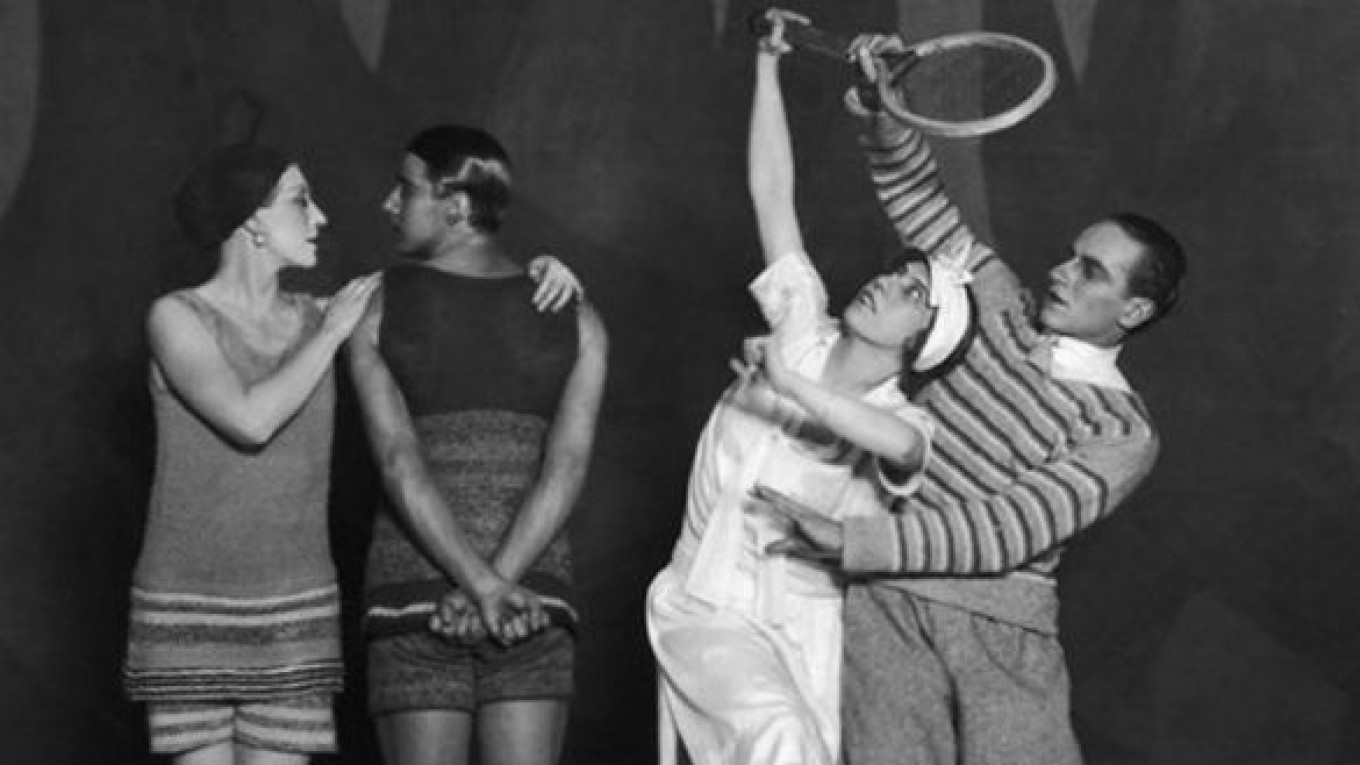LONDON — Russian dance impresario Sergei Diaghilev once sat down to dinner with Pablo Picasso, James Joyce, Marcel Proust and Igor Stravinsky.
For many, his name is the least familiar amid the roll call of early 20th-century artistic greats, but a major exhibition at London’s Victoria and Albert Museum seeks to explain why
Diaghilev deserved his seat at the table.
“It is curious organizing an exhibition when you know that your central figure is much less well-known than many of the people around him,” said Jane Pritchard, curator of the show that opens on Saturday.
“Diaghilev and the Golden Age of the Ballets Russes 1909-1929” is made up of three sections that provide the backdrop for the famous dance company to burst on to the European cultural scene, explain how it operated and showcase a wide range of ?costumes and designs used by the troupe.
It opens with an introduction to Diaghilev, who was born in Russia in 1872 and rose in the world of the art through his friendship with artists, involvement in periodicals and organization of exhibitions.
But sensing that his best opportunities lay abroad, he left his homeland for Paris where he and his ballet company would soon be at the cutting edge of dance, music, costume and design.
“I think he found there was an eager audience in France,” Pritchard said, explaining why Diaghilev moved overseas.
“He felt he could make his mark there, and his early success meant that there was no going back,” she told Reuters. “He really created a ballet company that was ‘Russia for export.’”
The exhibition describes Diaghilev, an open homosexual who had affairs with several of his leading dancers including Vaslav Nijinsky, as “dictator, devil, charlatan, sorcerer, charmer.”
Diaghilev worked with some of the most important artists of his time, including Picasso, Henri Matisse, Stravinsky, Natalia Goncharova and Leon Bakst.
He constantly struggled with debt while running the Ballets Russes, but never stopped experimenting through music, choreography and design, and traveled the world tirelessly throughout the upheavals of Russian revolution and world war.
That conflict turned him from successful citizen of imperial Russia to stateless exile of Bolshevik Russia, where he would never return. He died in Venice in 1929 and his final hotel bill for 2,118.80 lire, on display, went unpaid.
The V & A drew on its extensive costume collection to provide dozens of outfits from some of the ballet company’s most famous productions.
There are Nijinsky’s choreography notes for “L’Apres-midi d’un faune,” which look like notes on a page, and a section devoted to the premiere of the Ballets Russes’ 1913 production of “The Rite of Spring” that caused a riot in a Paris theater.
Other highlights include Goncharova’s giant backcloth used for the coronation scene of “The Firebird” and, hanging next to it, the towering front cloth for “Le Train Bleu,” designed by Picasso.
The show also makes reference to the famous dinner in 1922, when a novelist hosted a dinner for the men he most admired to coincide with the opening of the ballet “Le Renard.”
Sydney Schiff managed to gather Diaghilev, Picasso, Stravinsky, Proust and Joyce at the Majestic hotel in Paris in what has been described as the “party of a lifetime.”
The Diaghilev exhibition runs until Jan. 9, 2011.
A Message from The Moscow Times:
Dear readers,
We are facing unprecedented challenges. Russia's Prosecutor General's Office has designated The Moscow Times as an "undesirable" organization, criminalizing our work and putting our staff at risk of prosecution. This follows our earlier unjust labeling as a "foreign agent."
These actions are direct attempts to silence independent journalism in Russia. The authorities claim our work "discredits the decisions of the Russian leadership." We see things differently: we strive to provide accurate, unbiased reporting on Russia.
We, the journalists of The Moscow Times, refuse to be silenced. But to continue our work, we need your help.
Your support, no matter how small, makes a world of difference. If you can, please support us monthly starting from just $2. It's quick to set up, and every contribution makes a significant impact.
By supporting The Moscow Times, you're defending open, independent journalism in the face of repression. Thank you for standing with us.
Remind me later.


